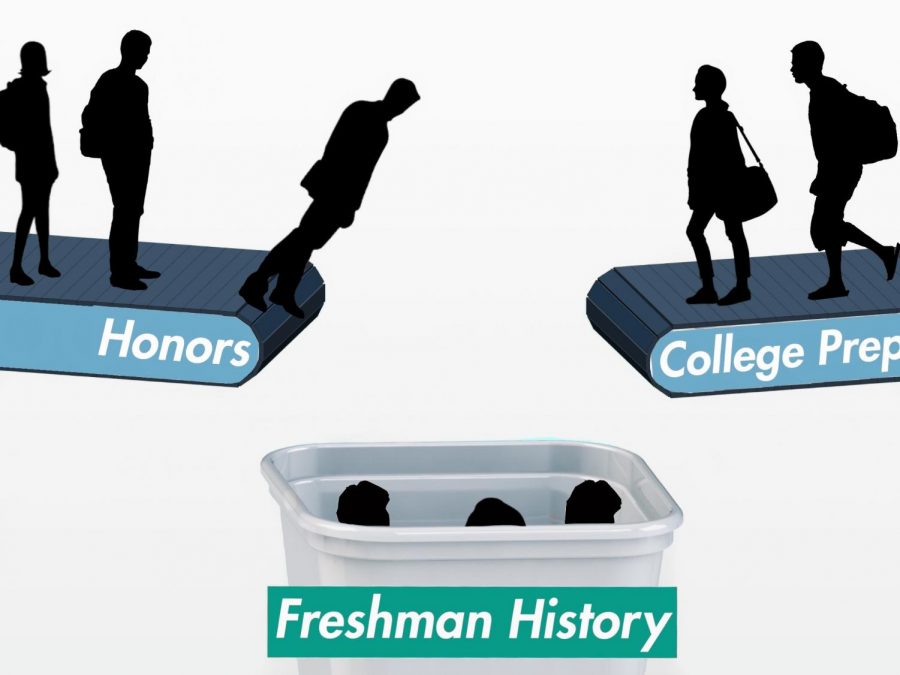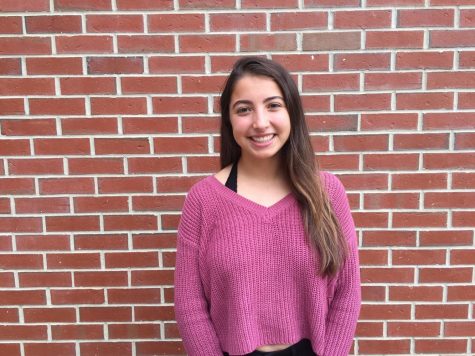US History I becomes unleveled, skill-based
Starting in the fall, only one level of United States History I will be offered to students.
June 2, 2018
The United States History I course will be unleveled for the 2018-2019 school year and will attempt to emphasize skill development.
While in past years students could take the course at the CP or Honors level, the class will now be combined for all freshmen to promote interaction and social growth. According to history teacher Amelia Braun, each student will receive CP credit. Everyone will be equally affected, thereby having no impact on GPA.
“We feel that the social needs of students will be met more in this manner, partially because you have a wider variety of students that are in one classroom setting,” history teacher Renee Moulton said. “You learn skills to be able to interact with all kinds of people.”
According to history teacher Kristin Turner, a group of teachers has been consistently meeting twice a week to reform the curriculum to become more skill-based. They have focused on developing common lessons aimed to promote skills that will be useful across disciplines.
“For example, the Road to Revolution is the first chapter,” Turner said. “The skill that we’ve matched with [the lessons for that unit] is asking questions. For the Constitution, the next unit that we do, it’s document analysis…We have matched skills that make sense with what we’re teaching.”
“We’re not as focused on dates and people, but utilizing that information to build a skill set that can be used outside of history classrooms,” history teacher Gregory DeCosmo said.
Eighth grader Elizabeth Debroczy, who will be a freshman in the fall, believes that these changes will be beneficial to her academic experience.
“I think that learning skills is more important than learning facts,” Debroczy said. “When are you ever going to need to know a specific fact?”
Furthermore, the new curriculum aims to include “traditionally silenced voices”, according to Turner. Junior Gabbie Permatteo feels that teaching the minority point of view will bolster students’ ability to “think critically about certain situations.”
“[History] is not just a narrative of important white men who have made important decisions…” history teacher Brian Kellett said. “We think it’s important to choose to tell the whole story and not part of the story.”
According to history teacher Justin McKay, the teachers are excited to collaborate to make the curriculum the best it can be for incoming students. They hope that it will allow for student achievement and diversity.
“[We hope that] in addition to academic growth, there will be social growth and emotional growth and the opportunity to interact with students they might not have necessarily interacted with,” Braun said.










